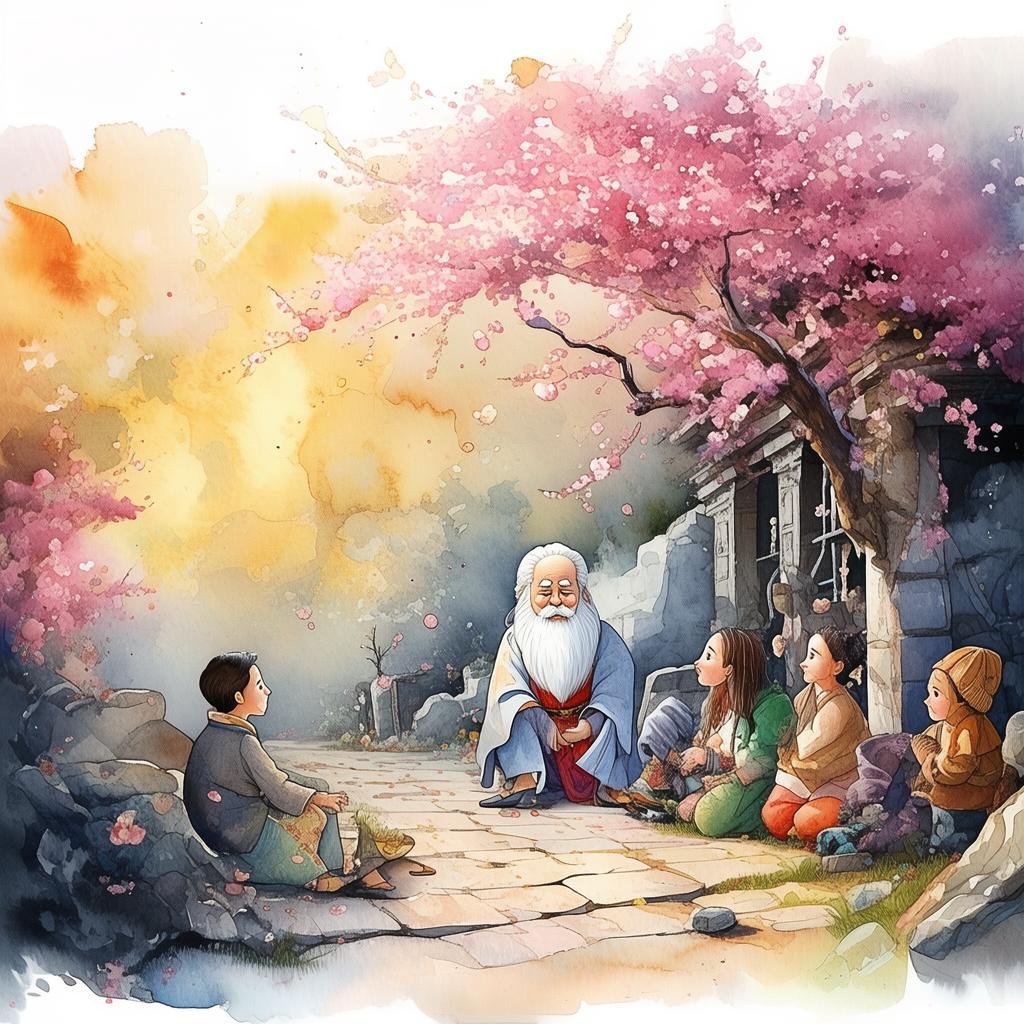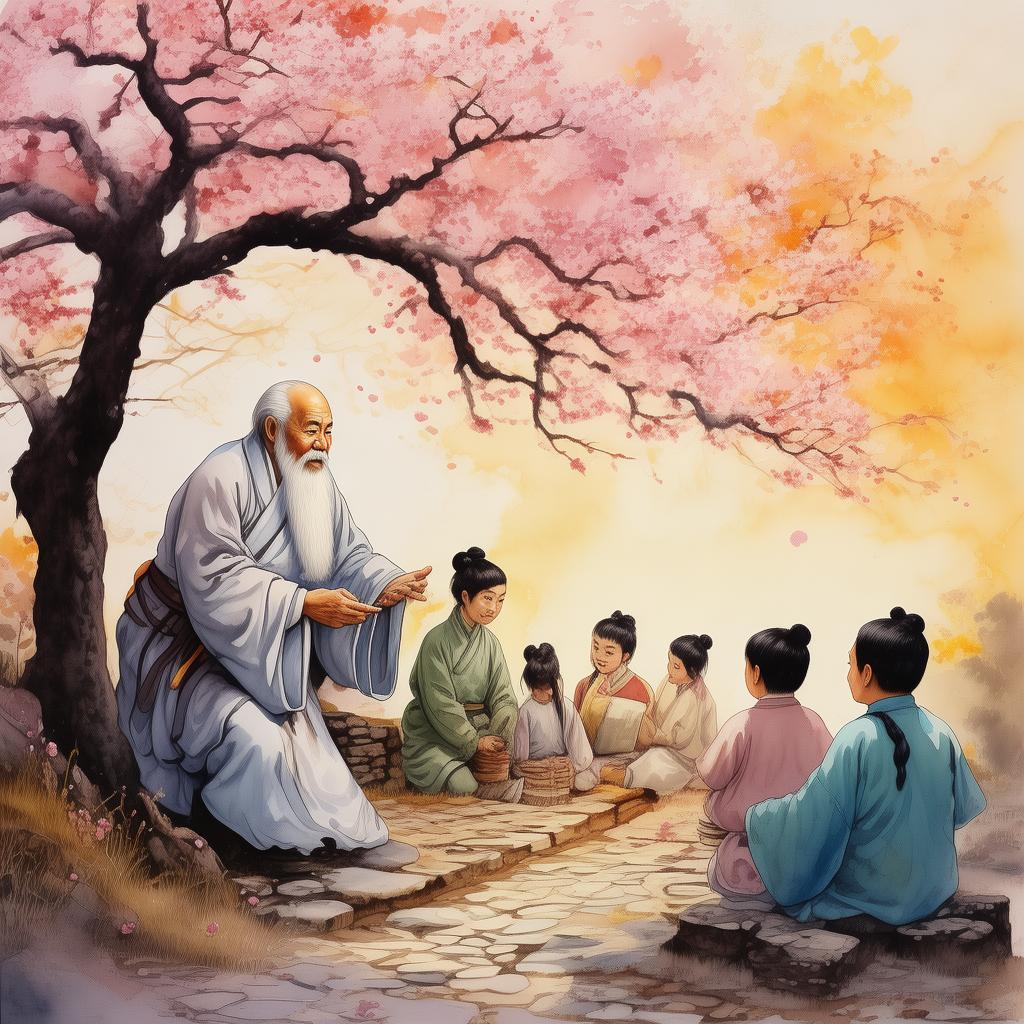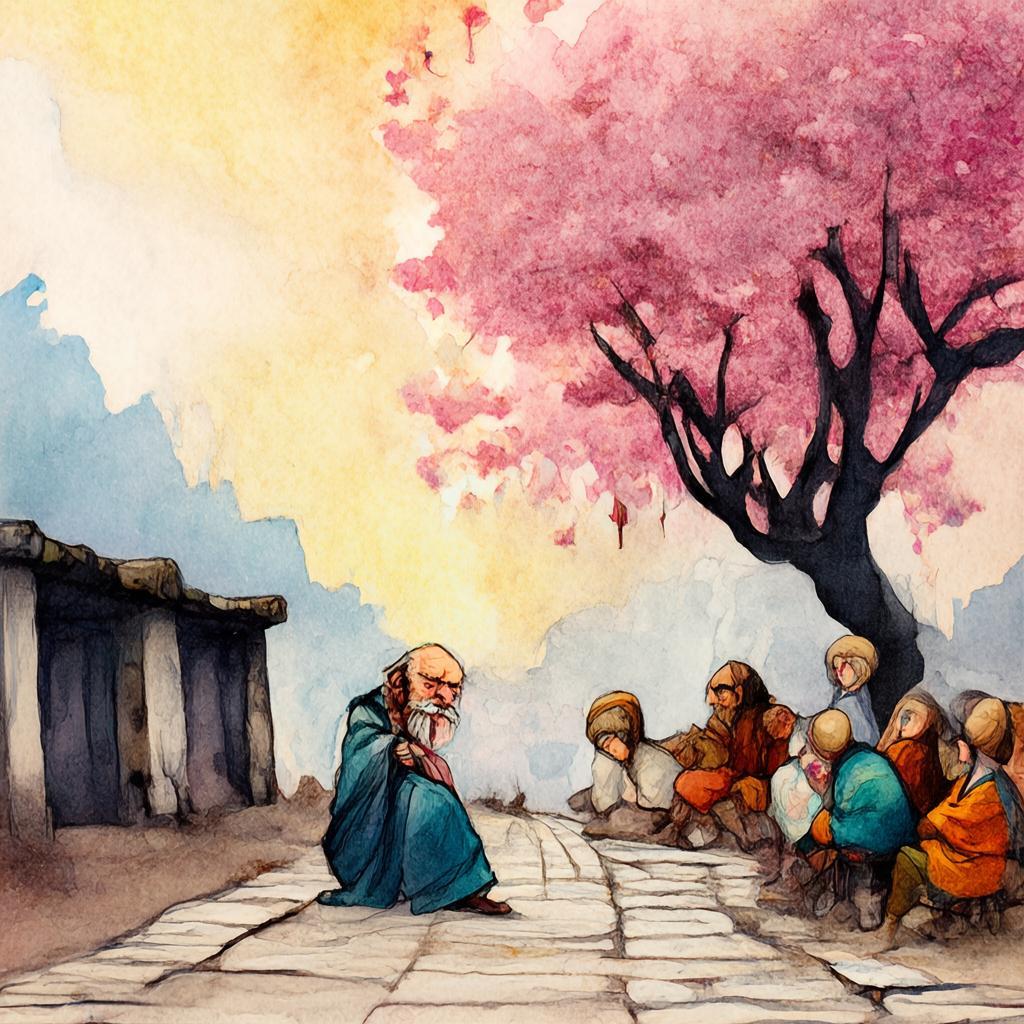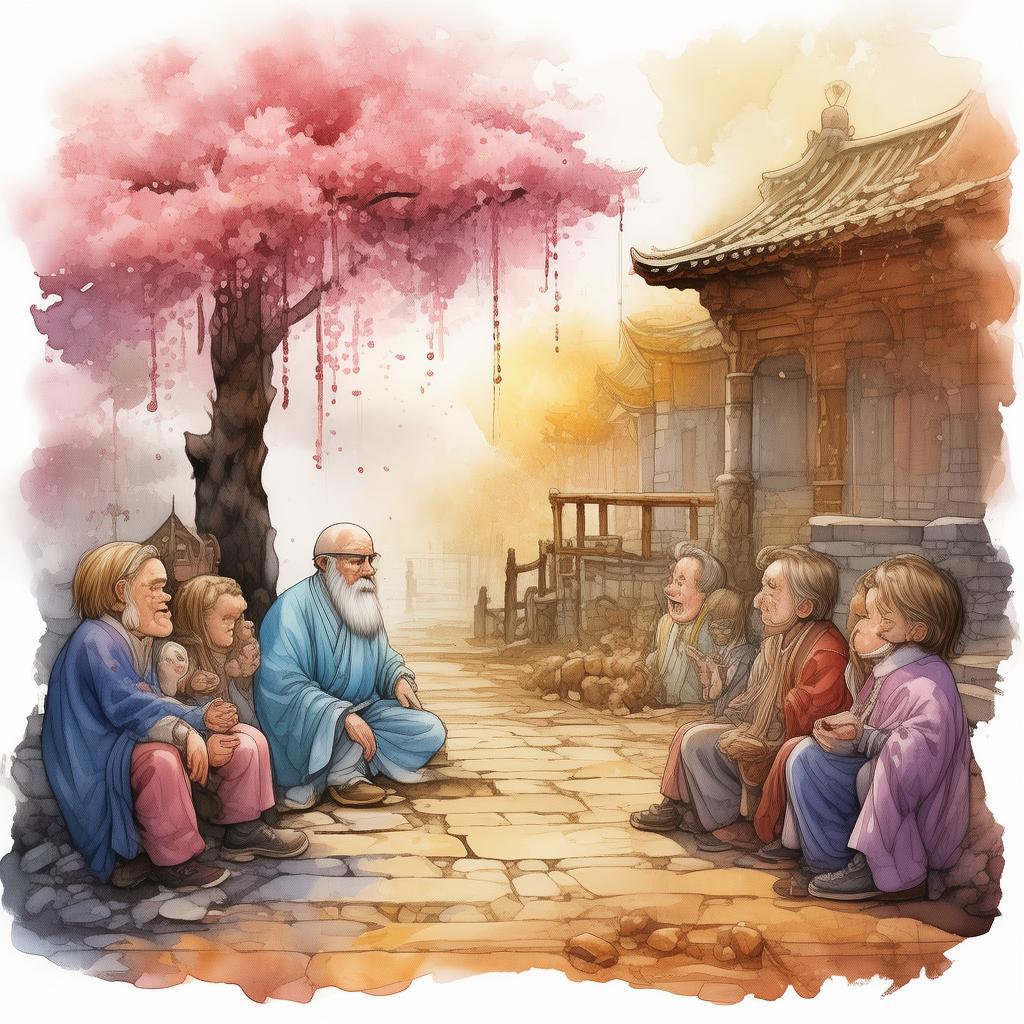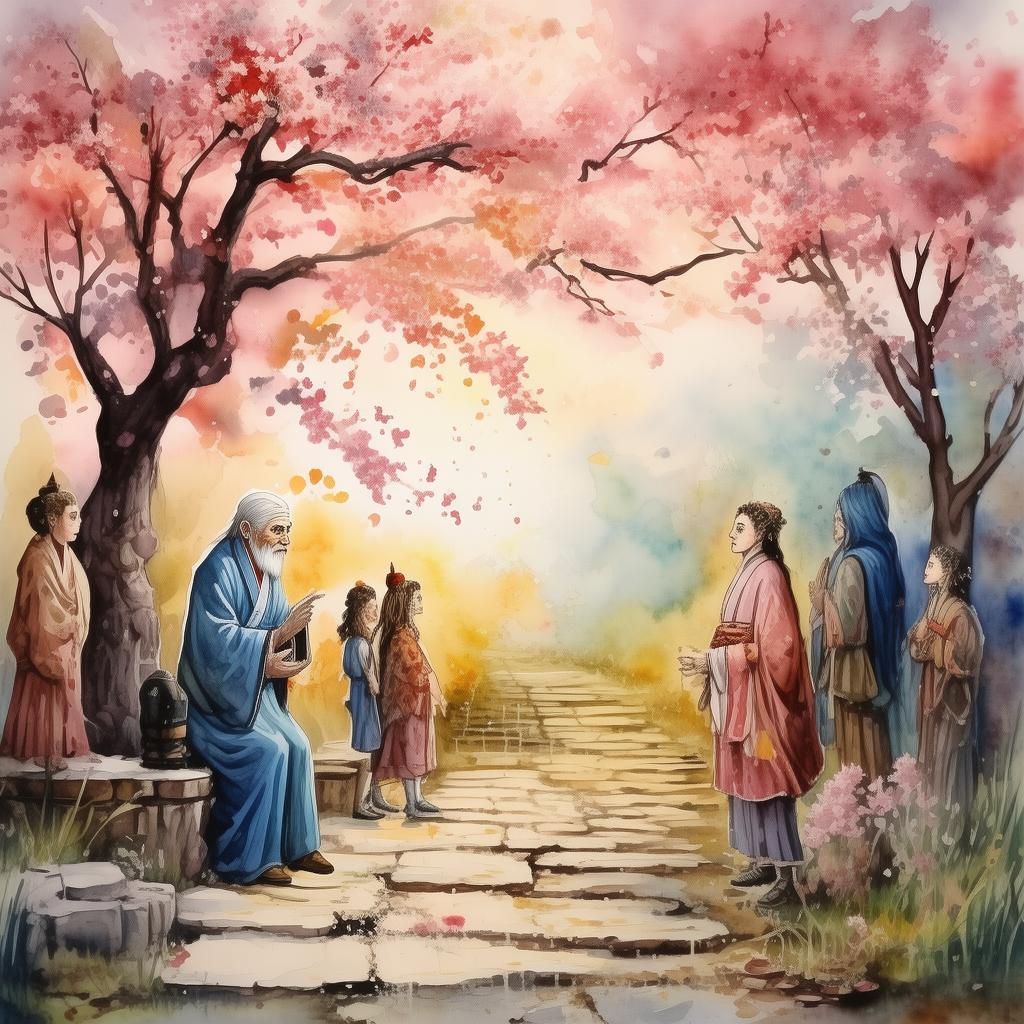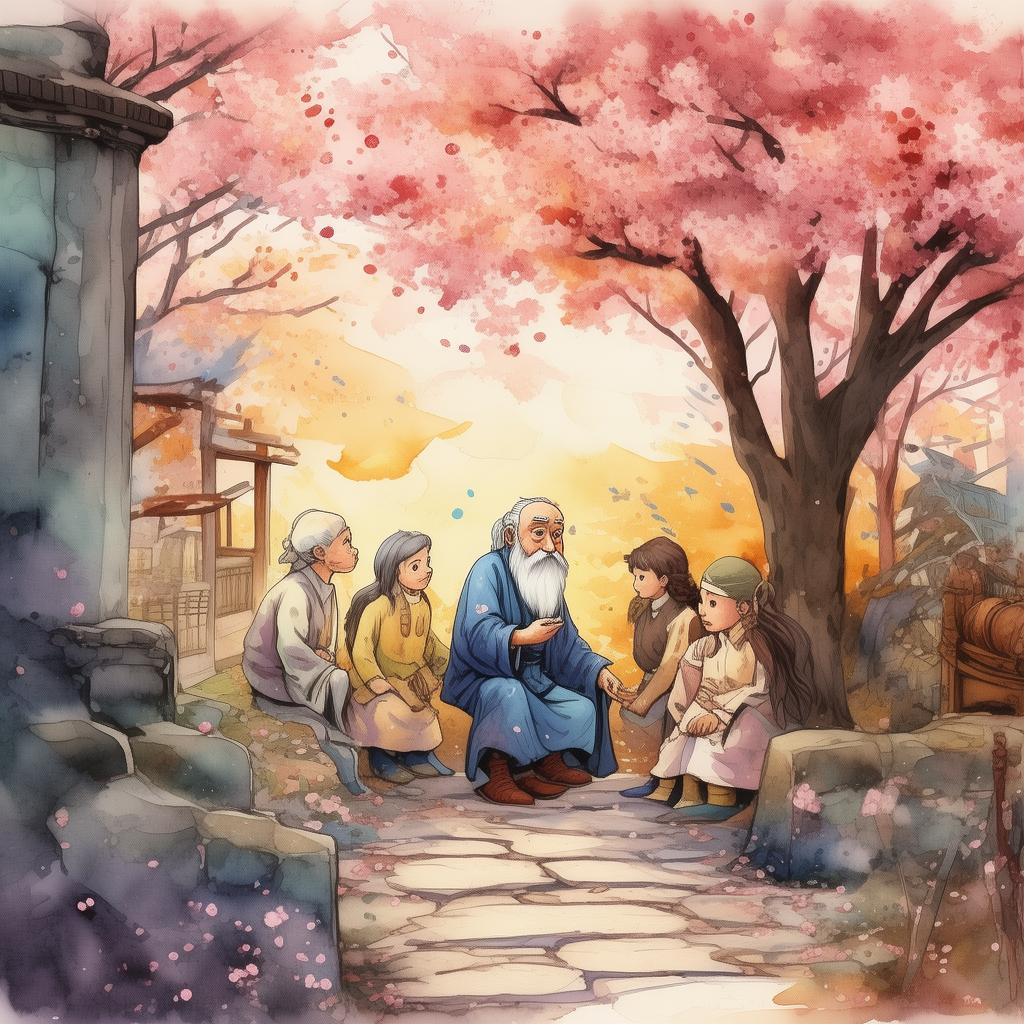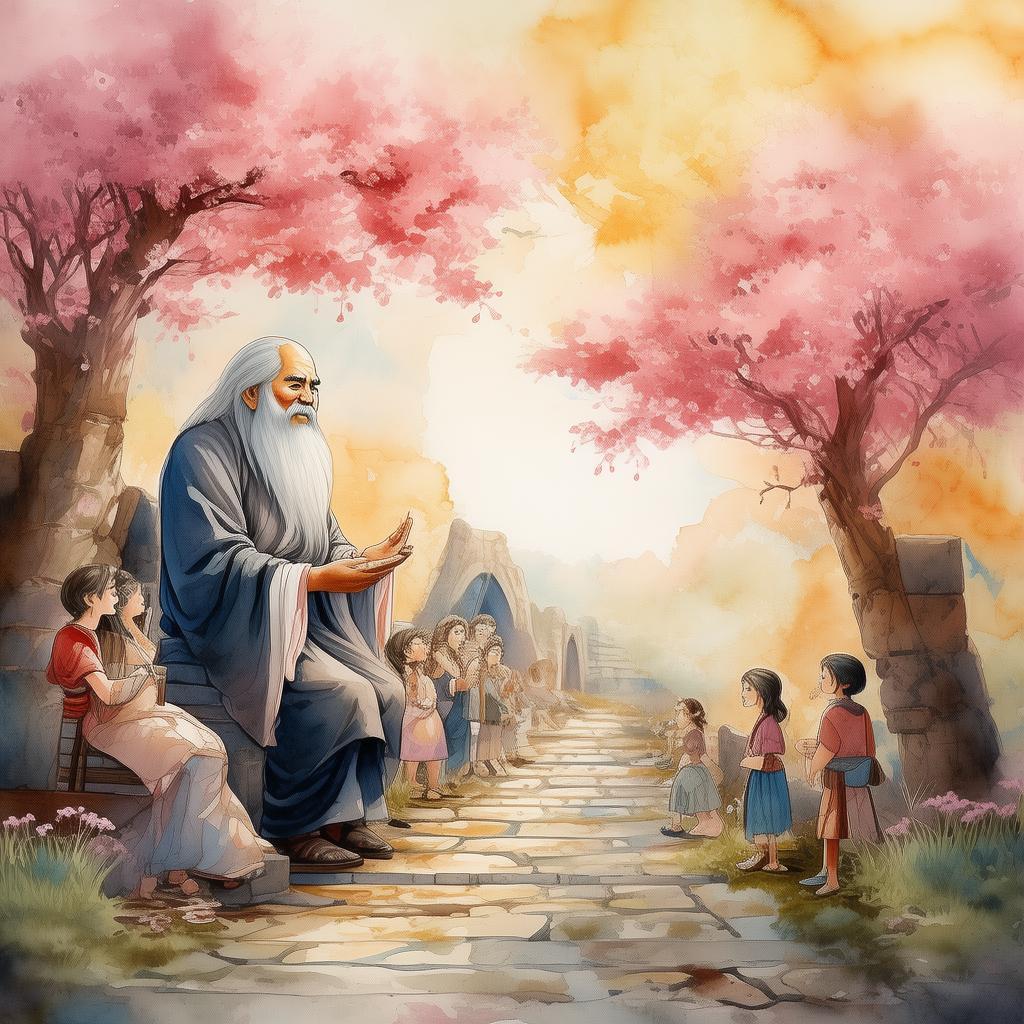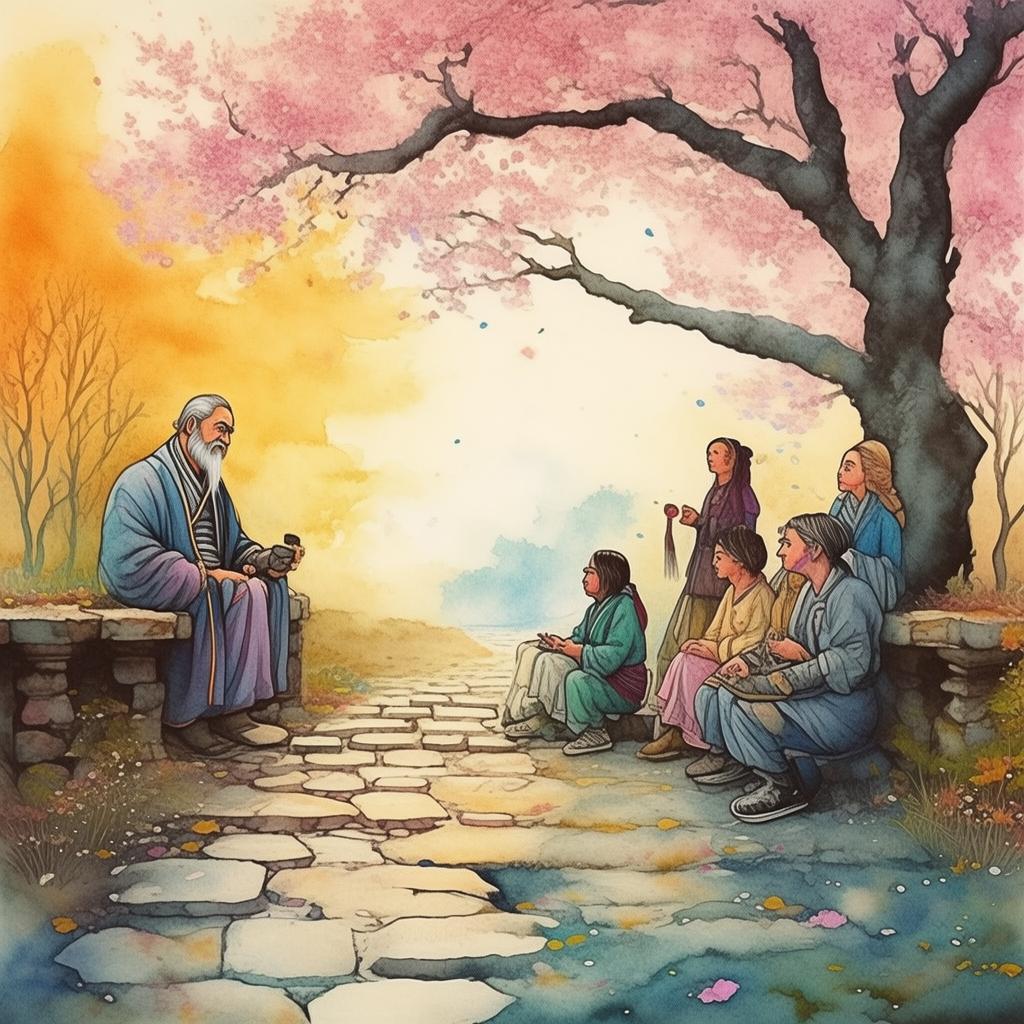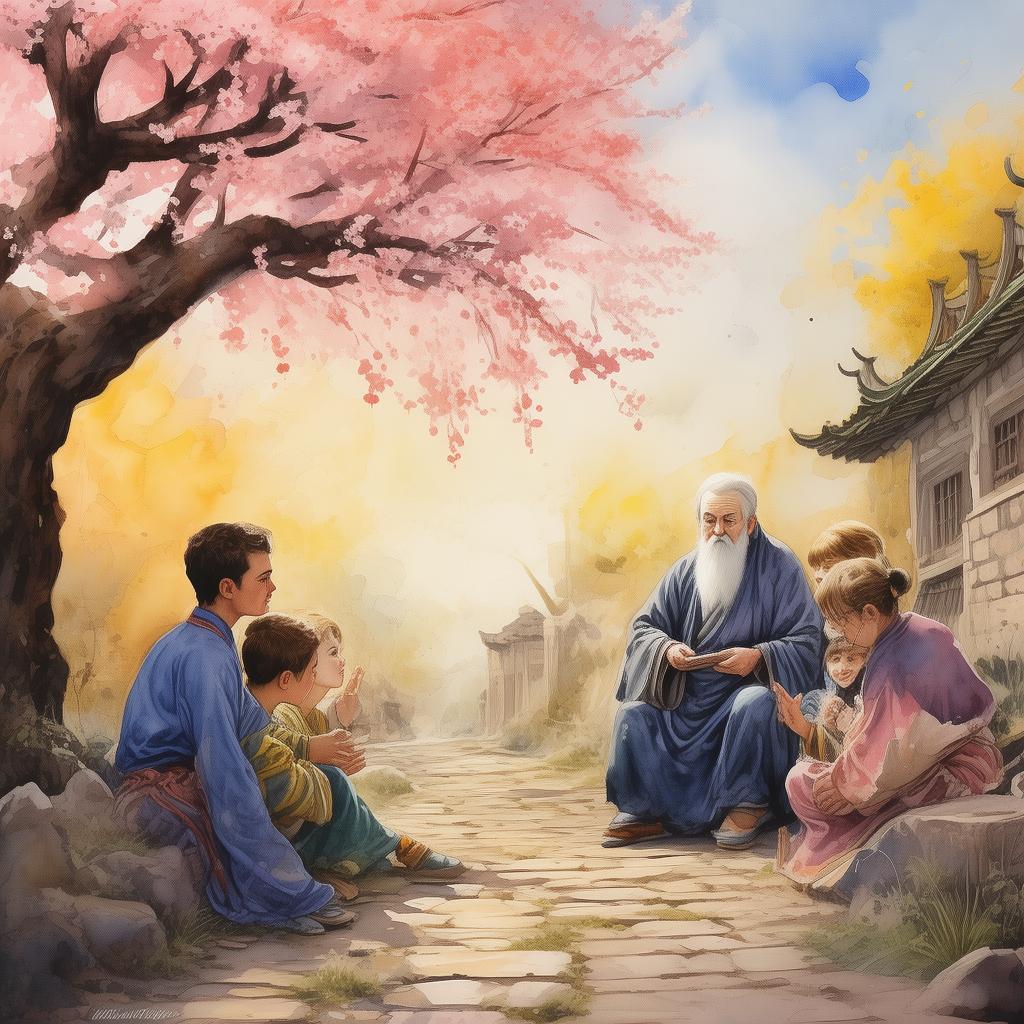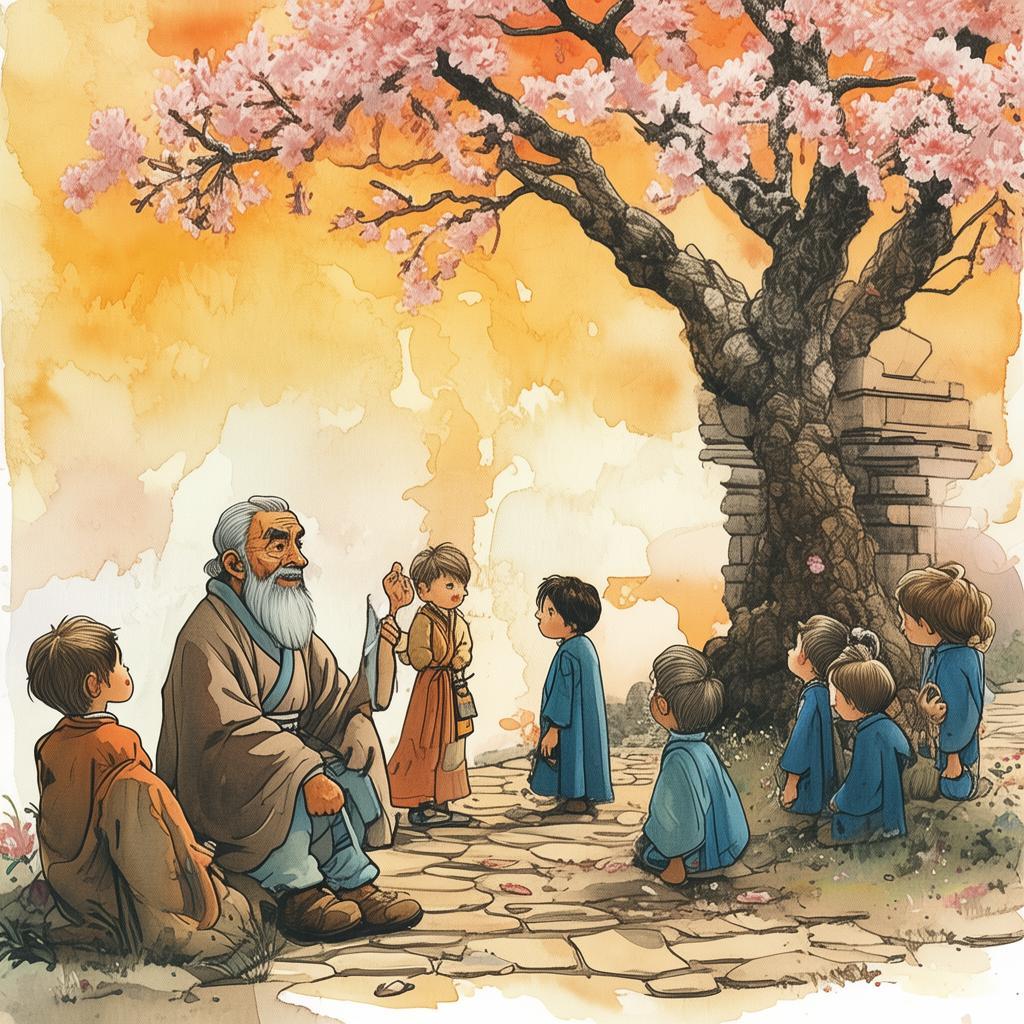The Shanxi Paradox: The Unraveling Threads of the Forbidden Temple
In the remote mountains of Shanxi, nestled between towering peaks and hidden valleys, there lay a temple shrouded in mystery and folklore. Known as the Forbidden Temple, it was said to be the resting place of ancient wisdom, protected by riddles and enigmas. The temple was forbidden to all but the chosen few, and those who dared to enter rarely returned.
Among the scholars of the land, there was one young man named Chen, whose mind was as sharp as the blades forged in the region's famous blacksmiths. Chen was known for his insatiable curiosity and his talent for deciphering idioms and proverbs. It was this very talent that led him to the edge of the forbidden zone, where the temple stood, its ancient pagodas reaching towards the heavens.
Chen's journey began with a simple puzzle: an old scroll that had been handed down through his family, filled with cryptic phrases and riddles. The scroll spoke of the Forbidden Temple and a hidden truth that could change the course of his family's destiny. Driven by his scholarly passion and the promise of unraveling the enigma, Chen set out on a quest to find the temple.
The path to the temple was fraught with peril. Chen had to navigate treacherous mountain trails, cross treacherous rivers, and outwit the local bandits who sought to claim the scroll for their own gain. Yet, each obstacle he overcame only deepened his resolve to uncover the truth.
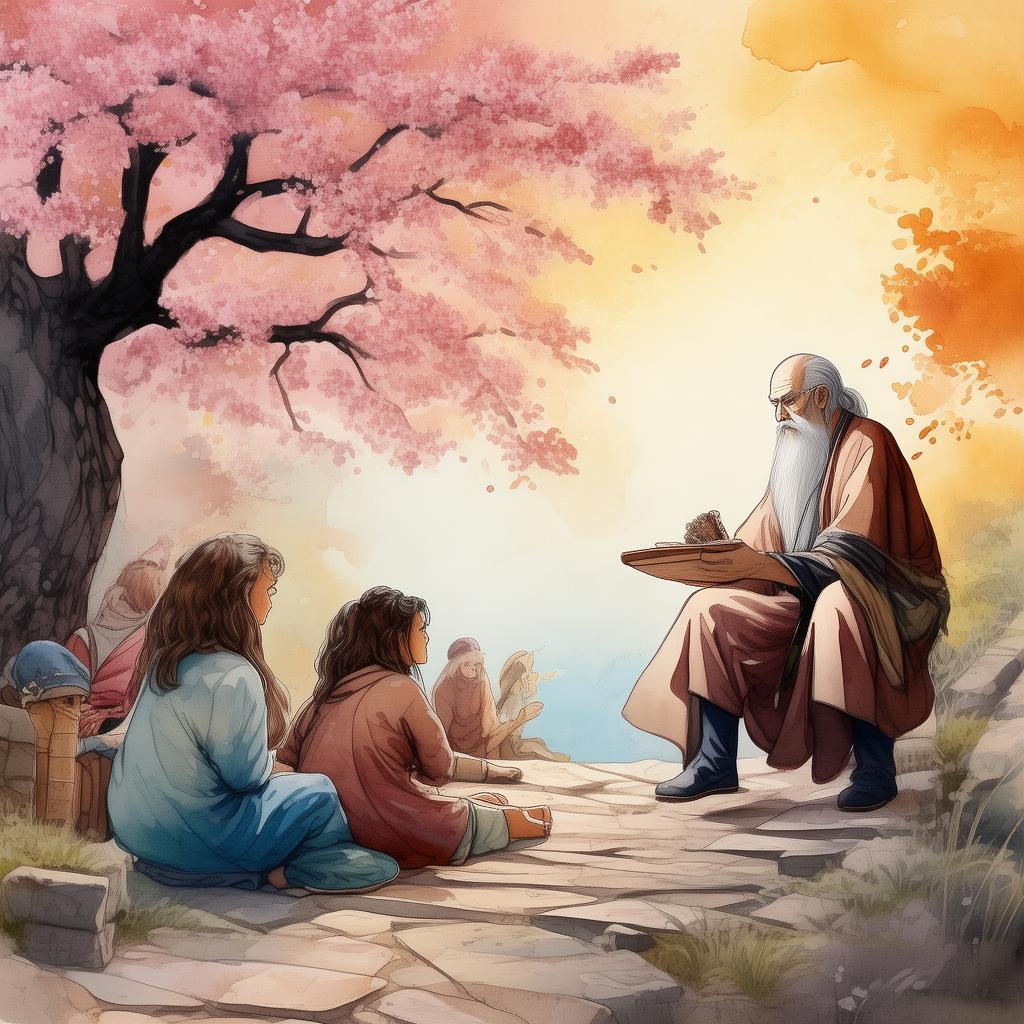
As Chen neared the temple, the air grew thick with the scent of pine and the sound of distant thunder. He could feel the ancient energy of the place, a palpable presence that seemed to whisper secrets of the past. The temple itself was a marvel of ancient architecture, with intricate carvings and symbols that told stories of old.
Upon reaching the entrance, Chen found himself face to face with a colossal stone gate, adorned with the same cryptic phrases from the scroll. He knew that he had to decipher the riddle to gain entry. With trembling hands, he recited the words he had memorized:
"Where the mountains meet the sky,
And the wind weaves through the tree,
There lies the temple of old,
Where the threads of time are tied."
The gate groaned and slowly creaked open, revealing a narrow path that led to the heart of the temple. As Chen ventured deeper, he found himself in a vast chamber filled with ancient scrolls, artifacts, and statues of deities long forgotten.
In the center of the room stood a pedestal with a single, ancient book. Chen approached it cautiously, his heart pounding with anticipation. He opened the book to find it filled with idioms and proverbs, each one leading to a new revelation about his family's past.
As he read, Chen discovered that his ancestors had been guardians of the temple's secrets, tasked with protecting the idioms that held the key to the region's prosperity and stability. The idioms were not mere sayings but threads that wove together the fabric of the land's history, culture, and destiny.
One idiom in particular caught his attention:
"The Shanxi Paradox: The river flows both ways, yet only one can be the sea."
Chen realized that this idiom referred to the paradox of his family's legacy. They had been both the guardians of the idioms and the ones who were bound by them. The river represented the people of Shanxi, and the sea symbolized the broader world. The river could flow towards the sea, but it could also be engulfed by it.
As Chen delved deeper into the temple's secrets, he uncovered a darker truth: the idioms were not just a source of wisdom but also a source of power. The temple's guardians had used their knowledge to manipulate events and maintain control over the region.
Determined to restore balance, Chen decided to release the idioms to the people, allowing them to interpret and apply the wisdom for themselves. He knew that this act would break the family's centuries-old bond with the temple but believed it was necessary for the greater good.
With a heavy heart, Chen left the Forbidden Temple, carrying the idioms with him. He traveled through Shanxi, spreading the wisdom and encouraging the people to use it wisely. The region flourished, and the idioms became part of the people's daily lives, guiding them through challenges and celebrating their triumphs.
Years later, Chen returned to the temple, now a humble ruin. He stood before the pedestal where he had once found the ancient book and whispered the words that had set him on his journey:
"The Shanxi Paradox: The river flows both ways, yet only one can be the sea."
He smiled, knowing that he had fulfilled his destiny and brought peace to his people. The Forbidden Temple, once a source of power and control, had become a place of reflection and learning, a testament to the power of knowledge and the courage to change one's destiny.
And so, the story of Chen and the Forbidden Temple became a legend, passed down through generations, a reminder that the threads of time can be unraveled, but the wisdom they hold can be woven into a tapestry of a better future.
✨ Original Statement ✨
All articles published on this website (including but not limited to text, images, videos, and other content) are original or authorized for reposting and are protected by relevant laws. Without the explicit written permission of this website, no individual or organization may copy, modify, repost, or use the content for commercial purposes.
If you need to quote or cooperate, please contact this site for authorization. We reserve the right to pursue legal responsibility for any unauthorized use.
Hereby declared.
